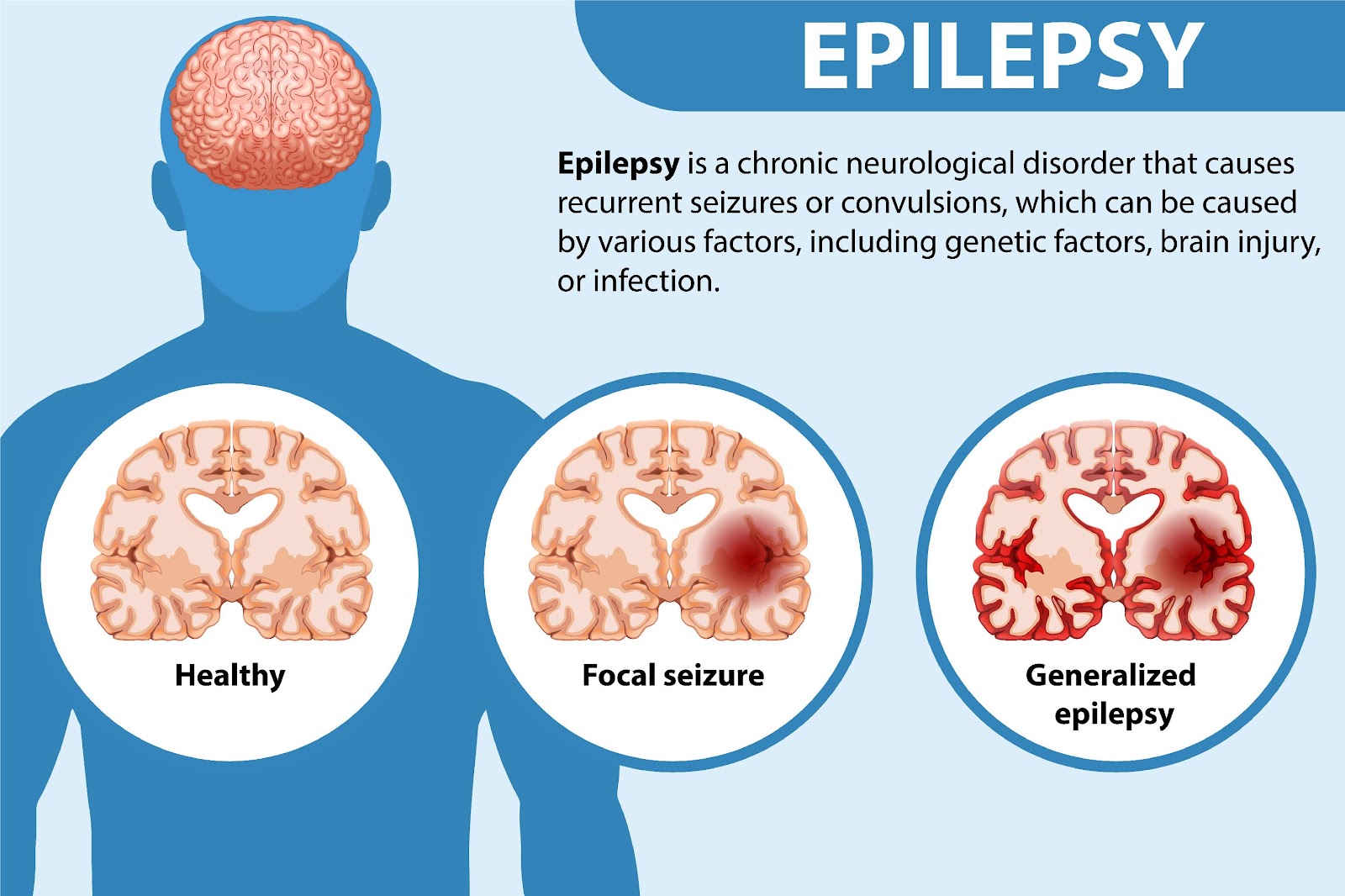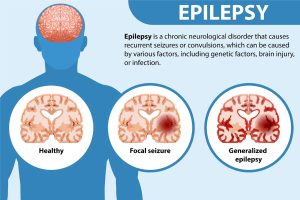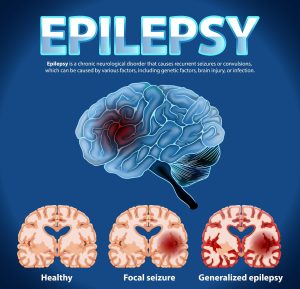Disclaimer:
This article is for information purposes only. It is not a substitute for medical advice or treatment. Seek medical care for your treatment.
What is epilepsy?
Epilepsy is not one disease or condition. There are different types of epilepsy with various symptoms and patterns. For pursuing the correct treatment it is necessary to know the kind of epilepsy you have.
Epilepsy is a neurological condition that creates unprovoked, frequent seizures. A seizure is a sudden abnormal electrical activity in your brain. Seizures include changes to your awareness, muscle control, sensations, emotions and behavior.
How is epilepsy treated?
Epilepsy Treatment helps you have fewer seizures or cease seizures completely. Your treatment will be based on:
- The intensity of your symptoms
- Your health
- How well you respond to the therapy
Possible treatments for epilepsy are:
- Medicines
- Surgery
- Therapies that prompt the brain using a device
- A ketogenic diet
- Medication:
Generally people with epilepsy can become seizure-free by taking anti-epileptic medicine. Some people can minimize the number and severity of their seizures by consuming more than one medicine. Many children with epilepsy, who don’t have any apparent epilepsy symptoms, do not need to take medicines and can live a seizure-free life. After two or more years without seizures, many adults can stop taking medicines. Your doctor can suggest you about the right time to stop consuming medicines.
Choosing the appropriate medication and dosage can be hard. When deciding which medication to prescribe, your doctor may take into consideration various factors, including your age, condition, and frequency of seizures. In order to make sure the anti-seizure medications won’t intervene with any other medications you may be taking, your doctor may also check those. Your doctor may increase the dosage slowly until your seizures are under control. There are more than 20 types of anti-seizure medicines. The intake of medicines totally depends on the type of seizures, your age and other health factors.
Anti-seizure medicines may have some undesirable effects. Mild effects are:
- Dizziness
- Fatigue
- Weight gain
- Loss of bone density
- Skin rashes
- Lack of coordination
- Speech issues
- Memory issues
More grave but infrequent effects are:
- Depression
- Suicidal thoughts
- Rashes
- Swelling of some organs like liver
For the best seizure control always use prescribed medicines, consult your doctor before switching your medicines. Never quit taking your medicine without your healthcare permission. Immediately consult your doctor if you experience new or intense feelings of depression or sudden mood swings or if you are having migraines. If anti-seizure medicines fail to give good desired results than your doctor may suggest surgery or other therapies.
- Surgery:
Surgery is another option when medicines fail to control seizures. In epilepsy surgery the surgeon eradicates the area of your brain that is causing seizures. Surgery is performed when your tests show that:
- Your seizure begins in a small area of your brain
- The surgery would not affect functions like speech, language, movement, vision or hearing.
Basically invasive methods like MRI-guided stereotactic laser ablation have the potential to reduce symptoms in certain cases of epilepsy. When open surgery is too unsafe, these treatments might be used rather. During this process, a thermal laser probe is pointed at the part of the brain liable for the seizures. In the hope to control the seizures, tissue is demolished. Following an effective surgical procedure, you may proceed to take medication to help hinder seizures. You might be able to reduce your dosages and take fewer medications, though. In some cases surgery for epilepsy can create complications so it’s better to consult your doctor about success rates and complications linked with the surgery.
- Therapies:
Other than medicines and surgery, certain therapies can help in treating epilepsy:
- Vagus nerve stimulation: is an option when medicines fail to control seizures and surgery is not an option. A device is implanted underneath the skin of the chest. Vagus nerve stimulation adverse effects include throat pain, coarse voice, irregular breathing or coughing.
- Deep brain stimulation: in deep brain stimulation surgeons insert electrodes into a certain part of the brain. Deep brain stimulation is frequently used for people whose seizures don’t get better with medicine.
- Responsive neurostimulation: these implantable devices can lower the frequency of the seizures and it has few side effects.
- Diet therapy:
The ketogenic diet and the Atkins diet-diets rich in fat, moderate in protein and less in carbohydrates are the two most repeated diets suggested for the people with epilepsy. Children are recommended these diets if the medication is not effective and are not fit for surgery. Low glycemic index diets may also reduce seizures in some people with epilepsy.
Researchers are studying many potential new treatments such as:
- Subthreshold stimulation
- Minimally invasive surgery
- Transcranial magnetic stimulation
- Transcranial direct current stimulation
Conclusion:
It is imperative to consult your doctor regularly for your checkups. People with epilepsy that is not well managed may need to visit their doctor more often.
Your doctor will recommend some treatments to control epilepsy such as anti-seizure medicines, special diets and surgery.



